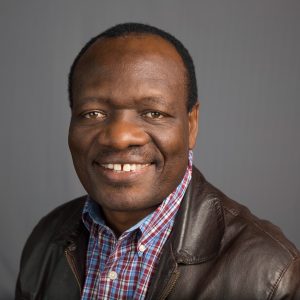Working together to nourish language communities
By Deb Fox | Wycliffe Today Christmas Edition 2023 |

Dr Michel Kenmogne has been the Executive Director of SIL International since 2016. He is from Cameroon and is the first non-Western person to fill the role. Michel’s experience as someone from a minority language group has given him insights into how we can support and equip translation projects. On his way home from the SIL Connect –Pacific meetings in Papua New Guinea, Michel travelled via Kangaroo Ground in Melbourne to speak with Wycliffe Australia and SIL Australia. Michel shared with great emotion about the impact that having the Bible and other literature available in his own language has made in his own life:
I myself am a speaker of a minority language. I know what it means to have one’s language acknowledged, put on the map and translated into Scripture. It enables people to feel as if they are sharing in equal dignity with other peoples around the world.
Michel encouraged everyone that working together as close organisational partners is continuing to be a blessing to the 1635 language projects with SIL involvement currently underway throughout the world. While Michel says that trained expatriate translation facilitators and advisors will still be required to support the work of minority language projects, local mother-tongue translators are increasingly the primary implementers. He also said that a focus on greater localisation is creating pathways for engaging with churches and establishing more projects for languages still without any translated Scripture:
Our language engagement is growing as a result of projects becoming more localised in many contexts. Local staff are receiving greater training opportunities to help programs become more self-sustaining. SIL’s initiative to become ‘locally rooted’ is not just about participating in a country as a foreign intervention but really seeking to be connected to the local church, to embrace the local culture, governance and whatever enables us to be seen as a natural expression of the locale in that context. We need to recognise that, theologically, it doesn’t make sense for organisations involved in the mission of God to not have an effective relationship with the Church.
For more information, visit https://www.sil.org/



 Thanks for your patience...
Thanks for your patience...